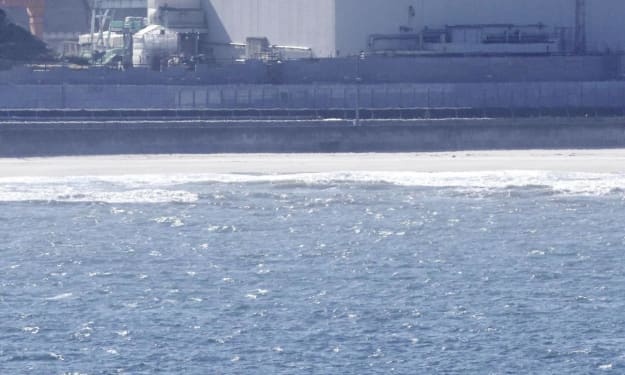Navigating the Complexities of Japan's Nuclear Contamination: Unraveling Fukushima's Legacy
探索日本核污染的复杂性:揭开福岛的遗产 在人类历史的篇章中,很少有事件像2011年3月发生在日本的福岛核灾难那样令人心悸且具有深远的影响。这场灾难性的事件不仅在全球范围内引发了震荡,还引发了有关核能、安全性、环境影响以及长期影响的广泛讨论。多年来,围绕日本核污染的讨论一直持续存在,涵盖了许多多方面的问题,包括废物处理策略、健康后果、政策转变、国际合作以及对全球能源范式的更广泛影响。 福岛核灾难的核心问题是一系列令人望而生畏的关切 - 从土壤、水源和生态系统的污染到确保公共安全和环境的复原。在灾难后,日本政府采取了多层面的方法来减轻危机。这些方法包括雄心勃勃的净化努力,废物处理的先进策略,以及稳定福岛第一核电站的复杂措施。然而,这些举措面临着巨大的挑战。技术复杂性不仅伴随着社会政治、经济和伦理考虑,还强调了解决这类灾难的错综复杂性。 日本在应对危机时的一个关键问题是核废料的处理。确保放射性物质的安全存储和处置对于防止未来污染和保护后代的安全至关重要。尽管日本在这方面取得了显著的进展,但关于如何负责任和有效地管理核废料的长期可行性仍然存在疑问。 与环境退化的担忧相结合的是有关核污染对健康的后果的焦虑。尽管福岛灾难的即时健康影响相对有限,但长期健康影响的威胁仍然是持续讨论的焦点。关于辐射暴露与健康结果之间的关联的担忧,不仅催生了科学研究,还引发了有关核能带来的伦理、社会和经济权衡的广泛讨论。 福岛核灾难对日本的能源政策产生了深远的影响。在灾难的影响下,从核能转向可再生能源逐渐成为一种趋势,体现了全球朝着可持续能源实践的更广泛趋势。这种转变强调了能源多元化的重要性,以确保更大的能源安全性和环境可持续性。 福岛的余波超越了日本的边界。这场灾难凸显了在处理核事件及其后果时国际合作的必要性。分享科学知识、最佳实践和技术解决方案已经成为应对全球核安全的一个重要方面。此外,福岛的灾难还揭示了全球供应链的复杂性,因为日本工业生产的中断在全球范围内产生了影响。 然而,围绕核污染的讨论远非单一。福岛事故强调了公众看法、政府透明度和监管框架的关键作用。有效的沟通、地方社区的参与以及参与性决策是建立公共信任、维护公共健康并确保负责任地管理核能的关键要素。 总而言之,日本核污染难题的复杂性故事远非简单的解释。它是一个涵盖技术复杂性、环境脆弱性、社会政治动态和伦理困境的故事。福岛

In the annals of human history, few events have been as harrowing and consequential as the Fukushima nuclear disaster that unfolded in March 2011. This catastrophic incident in Japan sent shockwaves across the globe, igniting discussions about nuclear energy, its safety, environmental ramifications, and long-term impacts. Over the years, the discourse surrounding nuclear pollution in Japan has persevered, delving into a myriad of multifaceted issues encompassing waste management strategies, health consequences, policy shifts, international cooperation, and broader implications for global energy paradigms.
At the heart of the Fukushima disaster lies an array of daunting concerns – from the contamination of soil, water, and ecosystems to the daunting task of ensuring public safety and environmental resilience. In the aftermath of the disaster, the Japanese government embarked on a multi-dimensional approach aimed at mitigating the crisis. This approach included ambitious decontamination efforts, pioneering strategies for waste disposal, and complex measures to stabilize the Fukushima Daiichi Nuclear Power Plant. Yet, these initiatives encountered formidable challenges. Technological complexities were accompanied by socio-political, economic, and ethical considerations, underlining the intricate nature of addressing such a calamity.
Central to Japan's response to the crisis is the challenge of nuclear waste management. Ensuring the safe storage and disposal of radioactive materials is of paramount importance to prevent future contamination and safeguard future generations. Although Japan has taken significant steps in this direction, questions persist about the long-term feasibility of managing nuclear waste responsibly and effectively.
Concerns about environmental degradation have dovetailed with anxieties about the health consequences of nuclear pollution. While immediate health effects from the Fukushima disaster were relatively limited, the long-term health implications remain an enduring focus of discussion. Fears of latent health impacts, including cancer, have fueled comprehensive studies exploring the correlation between radiation exposure and health outcomes. This dialogue has been instrumental in spurring not only scientific research but also societal debates about the ethical, social, and economic trade-offs associated with nuclear energy.
The Fukushima disaster wielded a profound impact on Japan's energy policy. In the wake of the catastrophe, a discernible shift away from nuclear energy became evident, manifesting in a growing emphasis on renewable energy sources. This transition resonates with global trends toward sustainable energy practices, resonating with a wider drive for environmental responsibility. The disaster underscored the vulnerability of single-source energy reliance and reinforced the urgency of diversifying energy portfolios to enhance energy security and environmental sustainability.
The ripples of Fukushima's wake extend far beyond Japan's borders. This disaster illuminated the necessity of international cooperation in managing nuclear incidents and their aftermaths. The sharing of scientific knowledge, best practices, and technological solutions has emerged as an imperative in addressing the global dimensions of nuclear safety. Furthermore, the Fukushima catastrophe laid bare the intricacies of global supply chains, as disruptions in Japan's industrial production reverberated across the world.
However, the discourse surrounding nuclear pollution is far from monolithic. The Fukushima incident underscored the pivotal roles of public perception, governmental transparency, and regulatory frameworks. Effective communication, involvement of local communities, and participatory decision-making are integral to fostering public trust, safeguarding public health, and ensuring the responsible management of nuclear energy.
In summation, the complex narrative of Japan's nuclear pollution conundrum defies simplistic explanations. It is a saga that encapsulates technological intricacies, environmental vulnerabilities, socio-political dynamics, and ethical quandaries. The legacy of Fukushima is not confined to Japan but resonates globally, a stark reminder of the intricate interplay between human ingenuity, nature's forces, and the urgency of responsible energy practices. As humanity forges ahead in the quest for energy security and environmental sustainability, the Fukushima disaster compels us to confront the complexity of nuclear energy head-on, while rallying international cooperation, ethical reflection, and innovative solutions to shape a safer and more sustainable energy landscape for the future.





Comments
There are no comments for this story
Be the first to respond and start the conversation.